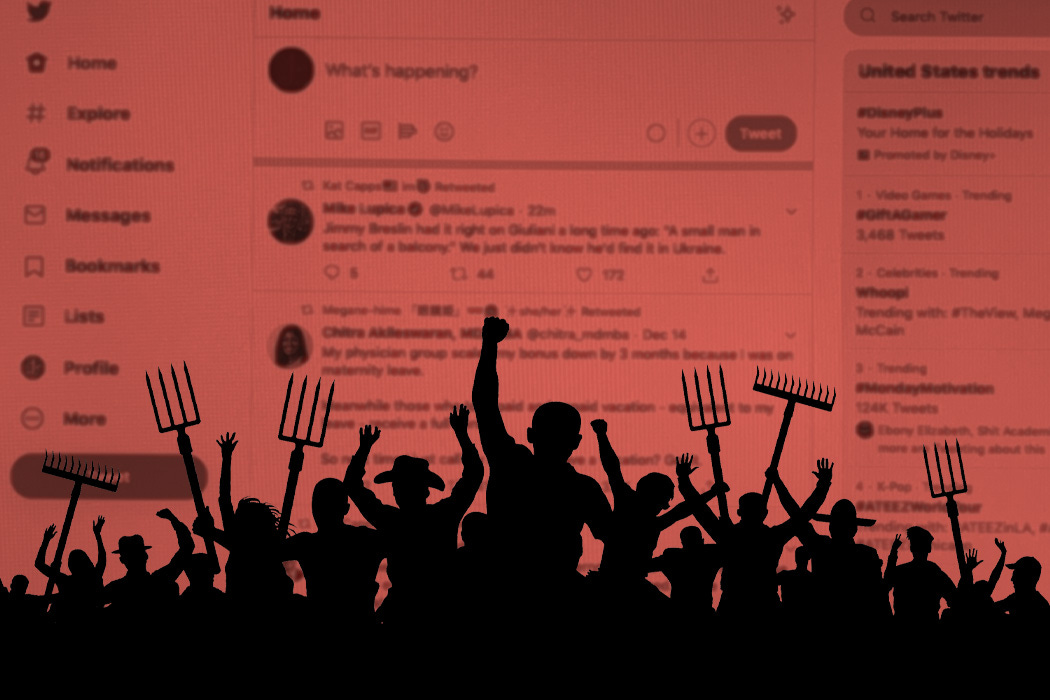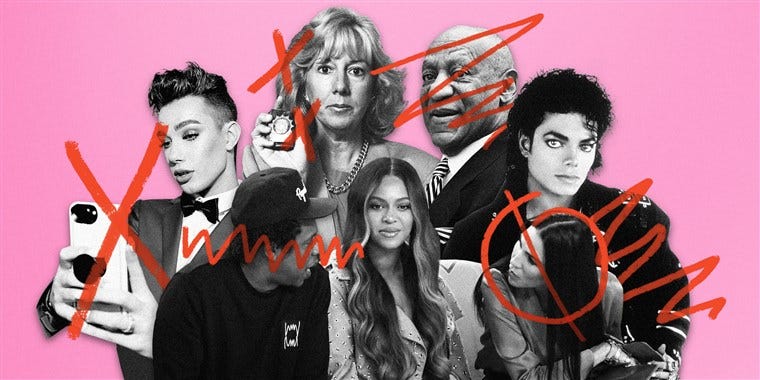Who is Going to be Canceled Next?
the rise of cancel culture in music... too far or not far enough?
As someone who is passionate about both music and social justice issues, cancel culture in the music industry can be a slippery slope. It feels like each day there is a new hashtag on Twitter canceling an artist for their controversial choices. While cancel culture may have arisen as a humble attempt to bring good to our society, it has branched into something problematic and dangerous.

via: https://daily.jstor.org/cancel-culture-is-chaotic-good/
The early days of cancel culture used media to target individuals whose fame and power overshadowed their dark pasts. From Michael Jackson and his perverted secrets to R. Kelly’s abusive scandals, the early outings of music’s biggest controversies brought attention from nearly every social media outlet. Initially, this attention actually attracted traffic to the artists’ music, rather than repelling it. While some complained that readjusting their music library around these canceled artists was a difficult task, others felt compelled to break their support and frankly lost any appetite to listen to their music after hearing the horror stories.
In these cases, I find cancel culture exposed the worst of the music industry. It proved the public has the power to taint reputations and prioritize morals over stardom. With this power, cancel culture has quickly grown to call out more and more artists. Suddenly a majority of my favorite artists have been “canceled.” Doja Cat, Kali Uchis, and Lana Del Rey are just a few to name. While their actions may have been unjust, I feel unsure giving so many artists such a permanent, punishing title. From being caught interacting with alt-white supremacists to allegedly being a rape apologist, the choices that led these artists to be canceled are legitimate concerns. However, what does it say about our society if we opt to cancel artists rather than have a deeper conversation? Rarely is there room for an explanation or perspective from an artist before we deem them unworthy.
The hip-hop industry has really become a platform for artists to express themselves, especially bringing to light moments from bitter pasts and rough upbringings. It feels counterintuitive to cancel artists and refuse to forgive them when the genre itself welcomes the idea of forgiveness and hope. We must recognize cancel culture is often initiated by narcissistic, hypocritical individuals who feel they are bringing a change to society by rejecting a person completely.

via: https://www.nbcnews.com/pop-culture/viral/deep-reckoning-or-fleeting-outrage-cancel-culture-s-complexity-proves-n1031466
This is why drawing the line for what is forgivable and what is inexcusable becomes unclear. People need to be held accountable for their actions, but society cannot function by simply pretending these individuals do not exist. We need to reevaluate which artists need to be “canceled.” In the last few months, we have chosen to cancel the rising female artists in the industry, yet we stopped pointing fingers at Chris Brown, Kanye West, or XXXTentacion. These artists have expressed abusive, misogynistic behavior for years that the media has lost interest in. For those who have committed serious acts against others, their punishment must be more strong than public humiliation drawn by teenagers on social media. These artists, whose power will not be lost from targeting hashtags, need to face persecution.
The final element we need to hold on to is empathy. While the concept of cancel culture was created to form a better society, it creates a harsh separation between individuals. Ultimately, choosing to not listen to an artist because of their questionable choices is an unprogressive decision. Choosing to cancel an artist completely eradicates voices from being heard. These voices are what create real, sustainable change, and help to move the music industry forward.


